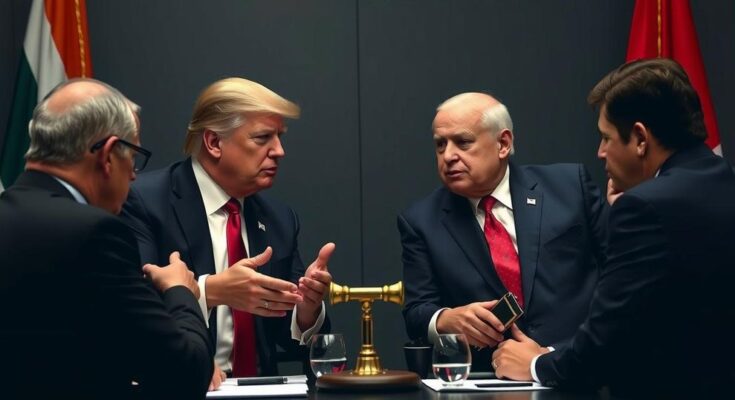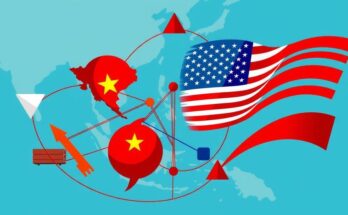President-elect Donald Trump has threatened to impose a 100% tariff on BRICS nations if they attempt to replace the U.S. dollar. This move follows ongoing discussions among BRICS about creating a new currency to lessen reliance on the dollar. Experts question the feasibility of such a currency and predict that the tariffs could lead to higher consumer prices in the U.S., potentially undermining the dollar’s global role.
On November 30, President-elect Donald Trump issued a stark warning to the BRICS nations, threatening to introduce a 100% tariff on goods from these countries if they attempted to replace the U.S. dollar as the global currency. The BRICS, which include Brazil, Russia, India, China, South Africa, as well as Egypt, Ethiopia, Iran, and the United Arab Emirates, was originally formed to bolster the standing of emerging economies and diminish their dependence on the dollar. Trump emphasized that unless these nations commit to not establishing or supporting a new competing currency, they could expect severe tariffs and a significant decline in access to the U.S. market.
This threat follows Trump’s previous announcements regarding tariffs on products from Canada, Mexico, and China, which he claimed were necessary to combat issues surrounding immigration and drug smuggling. The push for an alternate currency among BRICS nations stems from a desire to reduce the influence of the dollar, particularly in light of statements from leaders like Russian President Vladimir Putin and Brazilian President Luiz Inácio Lula da Silva, who have advocated for new financial systems free from U.S. dominance.
Despite aspirations for a BRICS currency, experts remain skeptical about the feasibility of such initiatives. The overwhelming prevalence of the dollar in international transactions poses significant challenges for any new currency to gain traction. Mark Weinstock, a global trade expert, articulated that creating a viable alternative currency could be politically and technically complicated, noting that BRICS countries currently lack the institutional stability necessary to inspire global confidence as an alternative reserve currency. Recently, South Africa’s government also quelled speculation about a new BRICS currency, clarifying that discussions are centered on trade using national currencies rather than developing a unified currency.
Furthermore, economic analysts suggest that should Trump’s proposed tariffs materialize, they could have negative repercussions for U.S. consumers. Increased tariffs would inevitably elevate prices on goods imported from BRICS nations, including essential products such as coffee, electronics, and clothing, thereby potentially fostering inflation. Critics of Trump’s strategy argue that such threats might actually weaken the dollar’s global standing rather than reinforce it, as it may compel other nations to seek alternatives. The situation places the U.S. in a precarious position concerning its economic influence globally, raising substantive questions about the future of international trade relations.
The BRICS nations—comprising Brazil, Russia, India, China, and South Africa—were established to promote the interests of emerging economies while lessening dependence on the U.S. dollar, the dominant currency in global trade. The dollar’s supremacy affords the U.S. significant geopolitical clout and economic advantages, such as lower borrowing costs. Recently, discussions among BRICS nations have focused on creating an alternative currency, prompted by calls from Russian and Brazilian leaders for a new international payments system. However, the practicality of executing such plans remains highly disputed among economists and trade experts.
In conclusion, President Trump’s threat of a 100% tariff on BRICS nations highlights the ongoing tension surrounding U.S. economic dominance and the potential for emerging nations to seek alternatives to the dollar. While BRICS members are exploring new financial frameworks, significant challenges persist due to the dollar’s entrenched position in global finance. The looming tariffs could adversely affect U.S. consumers and potentially provoke a shift away from reliance on the dollar, raising critical considerations about the future of international trade dynamics.
Original Source: www.cbsnews.com




